Emergency contraception
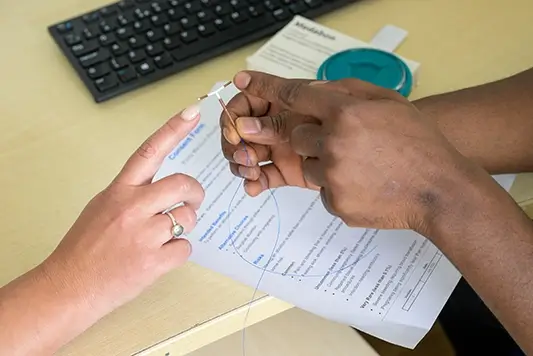
What is emergency contraception?
If you’ve had unprotected sex or your contraception has failed (e.g. you’ve missed taking a contraceptive pill or the condom has split), emergency contraception can be used to prevent a pregnancy.
There are three types of emergency contraception: the emergency contraceptive pill Levonorgestrel (LNG or Levonelle), the emergency contraceptive pill Ulipristal Acetate (UPA or Ellaone), and the non-hormonal coil (CU-IUD).
Types of emergency contraception
There are three types of emergency contraception:
- the non-hormonal coil (CU-IUD or copper coil): this is the most effective emergency contraception and can be fitted up to 120 hours or 5 days after unprotected sex. A copper coil is a small, T-shaped plastic and copper device that can provide contraceptive protection for up to ten years. One of the benefits of using the copper coil is that, once fitted, you can then choose to continue to use it as an on-going form of contraception.
- the emergency contraceptive pill Levonorgestrel (LNG), also known as Levonelle: it can be taken within 72 hours (three days) of unprotected sex, although the sooner it is taken, the more effective it will be.
- the emergency contraceptive pill Ulipristal Acetate (UPA) also known as Ellaone: this can be taken within 120 hours (five days) of unprotected sex.
There are a number of factors that may affect which of the emergency contraceptive pills (Levonorgestrel or Ulipristal Acetate) is right for you – for example, your medical history, weight, or if you are breastfeeding. When you seek emergency contraception, a healthcare professional will ask you questions and assess which method will be the most effective.
Read more about emergency contraception and the non-hormonal coil on the NHS website
What is the most effective form of emergency contraception?
The morning after pill is unlikely to be effective when taken after ovulation. The most effective form of emergency contraception is the non-hormonal coil or ‘copper coil’.
It can be inserted up to five days after unprotected sex, or up to five days after the earliest time you could have ovulated (released an egg), to prevent pregnancy.
We do not provide emergency contraception
MSI UK does not provide emergency contraception. If you want to get emergency contraception, you can do so from GPs, NHS walk-in centres, sexual health clinics, pharmacies and some hospital A&E departments.
At MSI UK, we offer contraception as part of our NHS-funded abortion services.
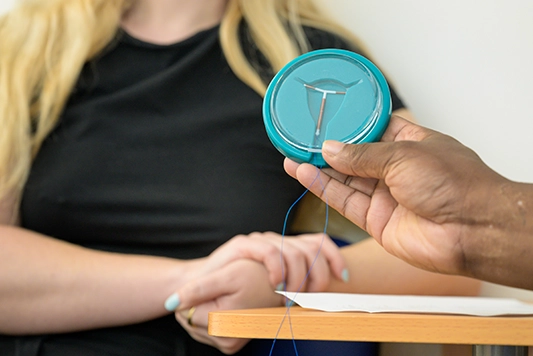
The non-hormonal coil as a method of emergency contraception
The non-hormonal coil is a small, T-shaped plastic and copper device that’s put into your womb (uterus) by a doctor or nurse. It releases copper to stop the egg implanting in your womb or being fertilised.
The non-hormonal coil can be inserted up to five days after unprotected sex, or up to five days after the earliest time you could have ovulated (released an egg), to prevent pregnancy.
You can also choose to have the non-hormonal coil left in as an ongoing method of contraception. The non-hormonal coil is the most effective method of emergency contraception.
The ‘morning after pill’ or emergency contraceptive pill
There are two types of emergency contraceptive pill: Levonorgestrel (LNG), also known as Levonelle, and Ulipristal Acetate (UPA) also known as Ellaone.
The emergency contraceptive pill is often referred to as the ‘morning after pill’, but in fact, it can be used up to five days of having unprotected sex depending on the type of pill you are using.
It is important to know that if the morning after pill is taken after ovulation (after the egg has been released from the ovary), it is unlikely to be effective. We recommend talking to a healthcare professional about this when seeking emergency contraception.
All you need to know about the emergency contraceptive pill or ‘morning after pill’
The ‘morning after pill’ is a progesterone-only hormone pill and works by delaying the release of an egg from an ovary, therefore preventing pregnancy. There is usually just one pill to take. The sooner you take the morning after pill, the greater the chances of avoiding pregnancy.
You can take the morning after pill after having an abortion or miscarriage.
When you need to take the morning after pill depends on the type of pill you are taking.
If you are using Levonorgestrel (also known as Levonelle), you can take the pill within 72 hours (three days) of unprotected sex. However, the sooner it is taken, the more effective it will be.
If you are using Ulipristal Acetate (also known as Ellaone), you can take the pill within 120 hours (five days) of unprotected sex.
Taking the morning after pill may affect your next period. It can delay your next period, but does not always do so and sometimes your next period can be early. The reason the morning after pill may delay your period is because it delays your ovulation. The delay to your period is usually only a day or two, but may be up to one week.
If you are worried about the delay to your period, or if your period is later than seven days, we recommend that you do a pregnancy test.
If your period is later than seven days, there are reasons other than pregnancy why this may be. Some people have irregular cycles so it can be hard to predict when the next period is due but stress and weight loss can also affect the menstrual cycle. Other causes include menopause, polycystic ovaries, thyroid issues and diabetes.
The sooner you take the morning after pill after unprotected sex, the more effective it will be.
It is important to know that if the morning after pill is taken after ovulation (after the egg has been released from the ovary), it is unlikely to be effective.
Your fertility returns immediately after you take the emergency contraceptive pill. If you don’t want to get pregnant, you might want to use a method of contraception that suits you.
Click here to learn more about different methods of contraception.
If you’re aged 16 or over, you can buy the emergency contraceptive pill from most pharmacies, in person or online. You need to be at least 16 years old to buy the morning after pill online. The cost varies, but it will be around £25 to £35.
We recommend being assessed by a health professional before using emergency contraception.
If you want the morning after pill for future use:
Some organisations may allow you to buy the morning after pill for future use. Check your options with your provider.
To know more about where to get emergency contraception, visit the NHS website here: emergency contraception guide
Brook provides free, confidential relationship and sexual health services for young people. These include contraception, STI testing and treatment, pregnancy testing and choices, counselling and online help and advice. For more information and to find your local service visit Brook’s website.
You can get emergency contraception for free from:
– GPs
– NHS Walk-in centres
– Brook services (for under 25s)
– Sexual health clinics
– Pharmacies
– Some Hospital A&E Departments
What is the difference between the ‘morning after pill’ and the abortion pill?
The ‘morning after pill’ is not the same as the ‘abortion pill’. The main difference is that the morning after pill prevents a pregnancy, whilst the abortion pill ends an existing pregnancy.
The ‘morning after pill’ is an emergency contraceptive. There is usually just one pill to take. The sooner you take the morning after pill, the greater the chances of avoiding pregnancy.
A medical abortion (or “abortion pill” as it sometimes called) involves taking two different types of medicine – mifepristone and misoprostol – at different times, to end an existing pregnancy.
At MSI UK, we offer abortion pills (also called a medical abortion) up to 9 weeks and 6 days of pregnancy.
The ‘morning after pill’ is an emergency contraceptive and prevents a pregnancy
There is usually just one pill to take.
The abortion pill ends an existing pregnancy
There are two different types of medicine to take at different times.
Learn more about contraception
Visit the pages below to learn more about different types of contraception, and find a useful tool to help you choose a method of contraception that is right for you.
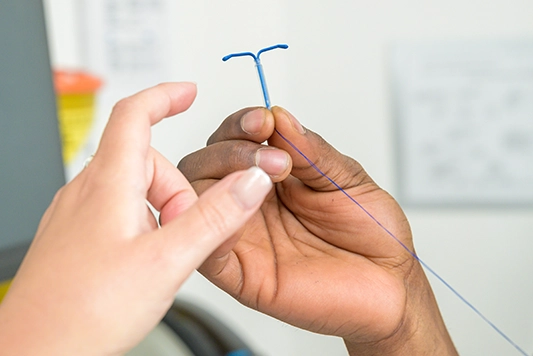
Long-acting contraception
Long-acting contraceptive methods include the coils, the injection and the implant.
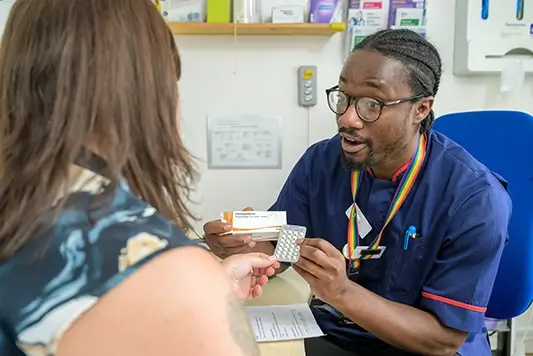
Short-acting contraception
Short-acting methods include the contraceptive pill, patch and ring.
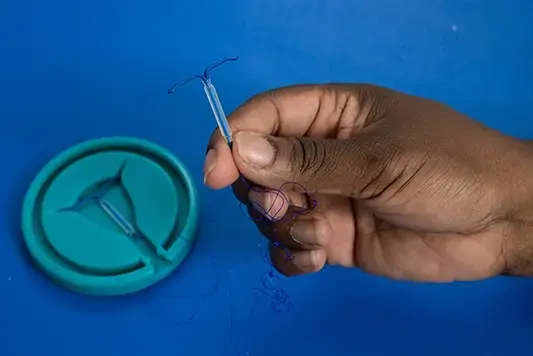
Which method is right for me?
Find a contraception comparison tool that can help you find the right method for you.




